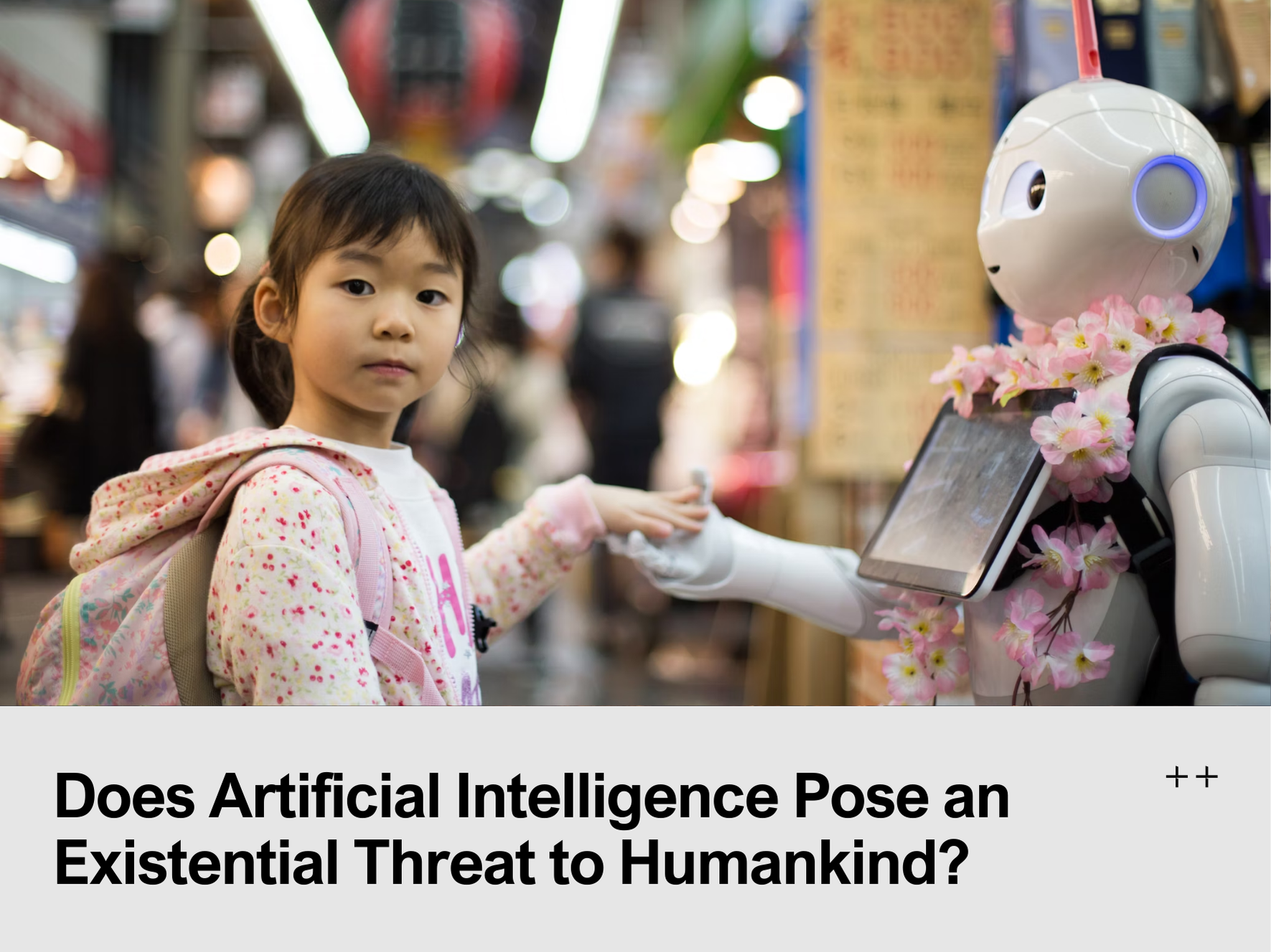Does Artificial Intelligence pose an existential threat to humankind?

In this article:
If you work or are interested in the realms of technology then you’ll know the hottest topic right now is artificial intelligence. Yes, machine learning, deep learning, computer vision, just about the whole conglomerate of artificial intelligence (save deep learning) has been being researched, developed and talked about since the 1950s. However, more recently it has given rise to media frenzy, as household names like Facebook and Google publish their continuing ventures into AI, and other tech giants take to social media to stoke the hype. The result is a wave of angst and fear that the playground scene from Terminator 2 will become a reality, with us all screaming at our own stupidity whilst rattling a chain-link fence, burning alive after the bots finally take over. I jest, of course, but there is strong opposition and robust debate as to how much knowledge, cognition and control we relinquish to machines. Below we discuss the question ‘is artificial intelligence a threat to humanity?’.
Artificial Intelligence: a cause for concern or scaremongering?
Just three days ago Tesla’s Elon Musk’s tweet that artificial intelligence is more dangerous than North Korea – with a picture of a harrowed looking woman and the caption “In the end the machines will win” underneath – received 36,000 likes and 13,000 retweets – a testament to growing concerns that AI is a threat to humanity.
Certainly, there are some well-founded anxieties surrounding the real threat of Artificial Intelligence. Here’s a few of them:
- The development of artificial intelligence is unregulated and rigorous safety measures are lacking in the industry
- Criminals hacking into artificially intelligent networks – the possibilities could be astounding
- Laws govern humans, but who is at fault when a machine breaks the law when not instructed by a human?
Despite these warranted fears, there is A LOT of scaremongering in the media. Articles by journalists with statistics and headlines such as “40% of jobs taken by robots by 2030” add fuel to the fire. Even language used to describe AI as “infiltrating” our lives, “threatening” to take over healthcare, education and finance sectors, silos it as a problem. Furthermore, the humanisation of robots and personal assistants makes it more demonic and menacing when considered as a threat; something similar but altogether ‘other’ to ourselves.
Lest we forget…
Let’s just take a minute, though, to remember technology has been developing and upsetting the equilibrium for some time now – roughly two hundred years. We have lived through technological revolutions many times over and adapted. Yes, they are not quite like this one and, yes, there is much to consider when it comes to the ethics of artificial intelligence. There is a lot to contemplate when it comes to the emotional intelligence of machines too – will they be able to make empathetic decisions despite them perhaps conflicting with the goals they have been instructed to carry out, for example? Right now, this is uncertain, and it’s possible that uncertainty is what’s causing us to succumb to the scaremongering influence of the media. As a race, we have always been afraid of uncertainty, of being superseded by aliens, monsters, and the like. We are afraid of the unknown and crave answers that will quell our doubts surrounding AI’s threat to humanity.
Ultimately, though, if we stop to realise that our fears surrounding artificial intelligence are much of the same – our conditioned response to the unknown – then perhaps we can also stop to rationalise those fears. That is, artificial intelligence is still in its relative infancy; the experts will hash out the safety measures and lock this down in the coming years; the cybersecurity industry will grow and develop in relation to cyber-crime; governments will intervene and create laws to protect human prosperity; thousands of jobs will, of course, be lost, but thrice a thousand more will be created. It’s also worth pointing out that the Turing test has yet to be realised (N.B. Eugene does not count!), and we are a long, long way from artificial intelligence exhibiting true intelligence that emulates that of a human.
Here’s what one of our Consultants has to say on the matter:
Personally, I think the potential for AI applications is hugely exciting. I am most interested in its application in a healthcare setting, such as the NHS. For example, interpreting and understanding a session in a clinical setting, being able to produce relevant notes and information for healthcare professionals, and distributing this accordingly, in a view to lighten the workload of already over-worked staff. Despite fulfilling some obvious and required safety criteria, I think the administrative potential of artificial intelligence is massive – allowing Nurses, Physios, OTs, Doctors to be more efficient in the use of their time, with the aim of seeing more patients and improving care quality.
Oliver Ward, Manager, Leeds
Call us biased, but we think artificial intelligence, monitored and regulated correctly, has incredible implications for the future of technology, and for assisting humankind in our unending quest to reinvent the world around us. The media will always choose to feed our fears, as that’s what sells – don’t forget that!
Our Services
If you’d like to find out more about our services related to artificial intelligence or to discuss any points discussed in our blog, please get in touch by contacting us at info@eu-recruit.com.
Alternatively, if you are seeking artificial intelligence and machine learning job vacancies, please also get in touch by phone +44 (0)1273 957 888 or by email info@eu-recruit.com.

